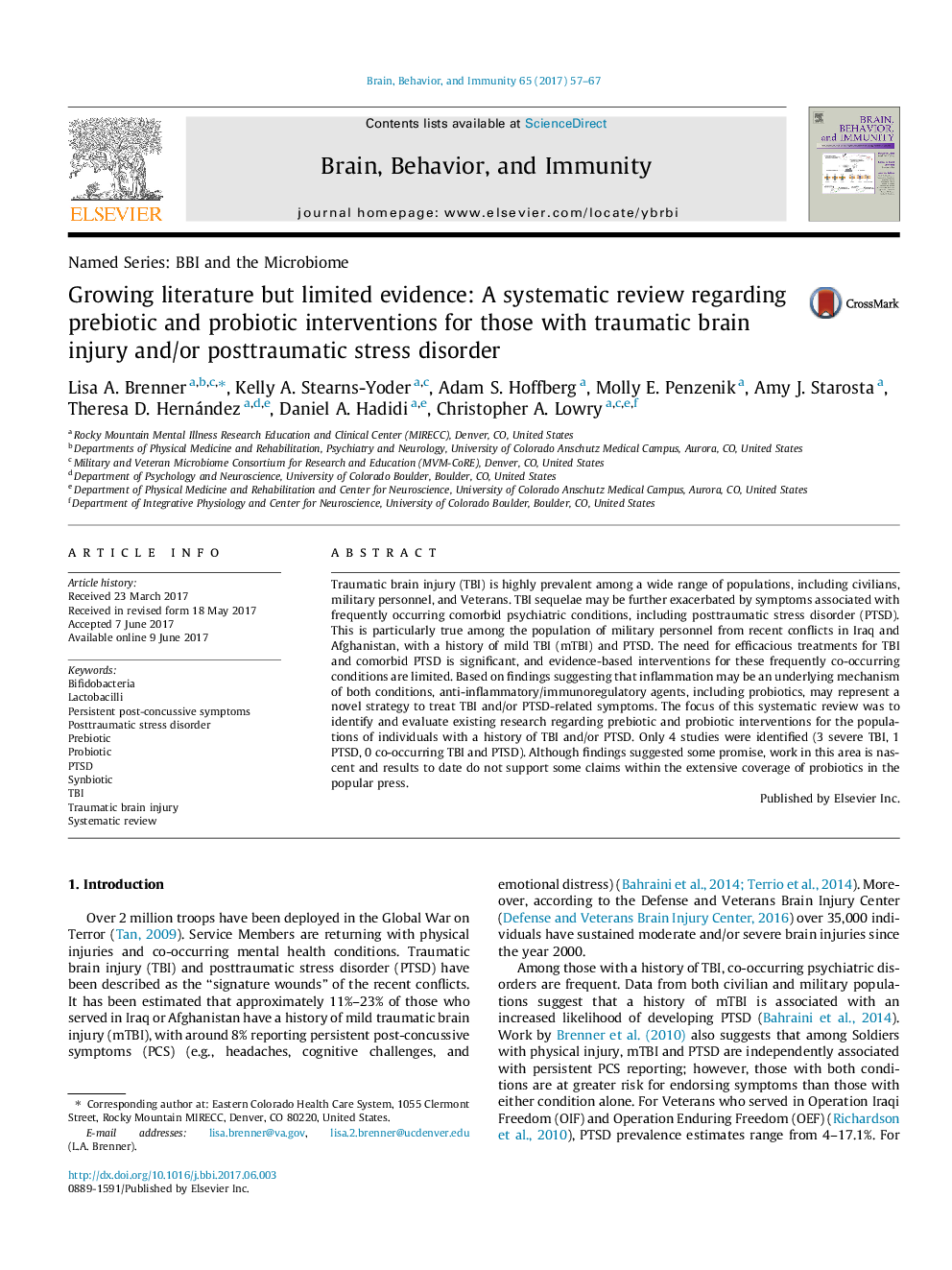| Article ID | Journal | Published Year | Pages | File Type |
|---|---|---|---|---|
| 5040581 | Brain, Behavior, and Immunity | 2017 | 11 Pages |
â¢TBI & PTSD are highly prevalent & often co-morbid conditions.â¢Inflammation may play key role in symptom onset & perpetuation in both conditions.â¢Efficacious treatments for co-occurring TBI & PTSD symptoms are extremely limited.Identified studies (3 severe TBI, 1 PTSD, 0 TBI & PTSD) suggested some promise.â¢Conclusions limited by variability in methods, supplements & outcomes of interest.â¢Larger trials are needed to explore biological signatures & clinical outcomes.
Traumatic brain injury (TBI) is highly prevalent among a wide range of populations, including civilians, military personnel, and Veterans. TBI sequelae may be further exacerbated by symptoms associated with frequently occurring comorbid psychiatric conditions, including posttraumatic stress disorder (PTSD). This is particularly true among the population of military personnel from recent conflicts in Iraq and Afghanistan, with a history of mild TBI (mTBI) and PTSD. The need for efficacious treatments for TBI and comorbid PTSD is significant, and evidence-based interventions for these frequently co-occurring conditions are limited. Based on findings suggesting that inflammation may be an underlying mechanism of both conditions, anti-inflammatory/immunoregulatory agents, including probiotics, may represent a novel strategy to treat TBI and/or PTSD-related symptoms. The focus of this systematic review was to identify and evaluate existing research regarding prebiotic and probiotic interventions for the populations of individuals with a history of TBI and/or PTSD. Only 4 studies were identified (3 severe TBI, 1 PTSD, 0 co-occurring TBI and PTSD). Although findings suggested some promise, work in this area is nascent and results to date do not support some claims within the extensive coverage of probiotics in the popular press.
